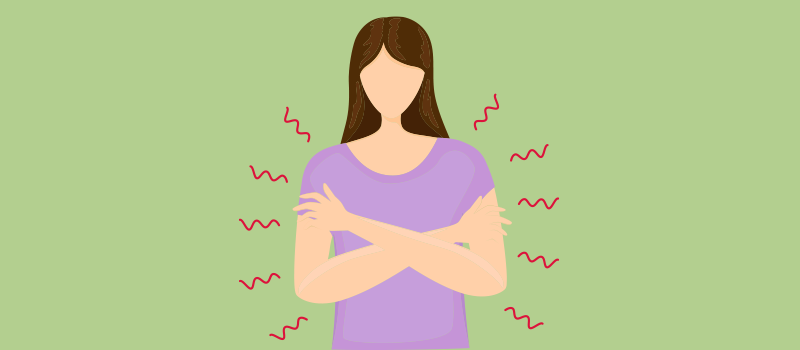What’s the Buzz
The Bee Healthy Blog
What Causes Inguinal Lymph Nodes to Swell?

Swollen lymph nodes in the groin often indicate a common infection, but they can also be signs of more serious complications and health conditions. This article will talk about some of the conditions that can cause lymph nodes in the groin to swell. We’ll also discuss treatments for these conditions and additional tests your doctor might order if you have inguinal lymph node swelling.
What are lymph and lymph nodes?
Lymph is a clear liquid that flows through lymphatic vessels. It contains immune cells such as white blood cells, which help fight infections.
Lymph nodes are bean-shaped glands usually less than 1 cm in size. They are part of the body’s immune system and lymphatic system. Their job is to filter lymph fluid. Lymph nodes may swell when the body tries to get rid of an infection or other harmful substances.
There are about 600 lymph nodes distributed throughout the human body. Some are present as single nodes, while others are in clusters called chains. Common locations for lymph nodes include behind the ears, in the neck, in the armpits, and the groin (at the top of the inner thighs).
The lymph nodes located in the armpits are called axillary lymph nodes, those in the neck are called cervical lymph nodes, and those located deep inside the groin are called inguinal lymph nodes. There are 10 groin lymph nodes present at the top of the inner leg on each side.
What is lymphadenopathy?
Lymph nodes of normal size can’t be felt. Lymphadenopathy is the medical term for enlarged or swollen lymph nodes that can be felt. You might notice swollen lymph nodes if the body is trying to fight an infection, which causes the lymph nodes to enlarge. Swollen glands can cause the overlying skin to become puffy and sensitive.
In a medical condition called generalized lymphadenopathy, there is an abnormal enlargement of lymph glands in more than two non-contiguous lymph node regions. This can occur due to malignancy, infections, and autoimmune conditions.
What causes persistently swollen lymph nodes in the groin?
Swollen lymph glands in the groin occur due to conditions affecting the lower body. Common causes include:
- A fungal infection, bacterial infection, or viral illness
- A skin infection
- An insect bite or dog bite
- STIs (sexually transmitted infections)
Other causes of lymph node swelling in the groin include:
- Autoimmune conditions like arthritis, lupus, amyloidosis, sarcoidosis
- Inflammatory conditions such as lymphedema
- Cancers such as lymphoma, leukemia, lower body melanoma, vulvar cancer, cervical cancer, penile cancer (due to metastasis, generally)
- Certain prescription medications such as hydralazine, captopril, atenolol, allopurinol, carbamazepine
How do doctors diagnose a swollen lymph node in the groin?
Doctors diagnose swollen lymph nodes based on your health history and physical examination.
Your medical history can help point towards an underlying condition that could potentially cause swollen lymph nodes, such as conditions you’ve had previously, treatments or medications you’ve received, lifestyle factors like unsafe sex, or a family history of autoimmune diseases or cancers.
Your symptoms can also provide clues to the causes of swollen lymph glands, such as flu-like symptoms, persistent fever, night sweats, unexplained weight loss, and other symptoms.
A physical exam allows your doctor to assess all the major systems in your body. Your doctor will check for swollen lymph nodes in various regions. If swollen inguinal nodes are present, your doctor might apply gentle pressure to evaluate size and tenderness.
What tests will my doctor order if I have swollen lymph nodes in the groin?
Depending on what they suspect is causing the swollen lymph nodes, your doctor may order further testing. This may include laboratory tests to check for infection, imaging tests such as ultrasound or CT scan to determine the exact location and size of the swollen lymph nodes, and/or a lymph node biopsy to check for cancer.
What are some signs that swollen lymph nodes are due to cancer?
Cancers of the blood, lymphatic system, and reproductive organs can cause swollen lymph nodes in the groin. Some signs that a malignancy is the underlying cause of enlarged inguinal lymph nodes include:
- The swollen lymph nodes do not improve with medication treatment
- They are not painful
- They continue to grow (up to a few inches in size)
- They are hard and immobile (do not move easily with gentle pressure)
However, despite these characteristics indicating a high probability of malignancy, this should be confirmed by a biopsy.
What’s the treatment for swollen lymph nodes in the groin area?
Treatment depends on the underlying cause of the swollen lymph nodes.
- Infections can be treated with antibiotics, antifungals, and antivirals. The swelling in groin lymph nodes usually goes away within a few days of starting treatment, but sometimes it can take longer to resolve.
- If a medication causes swollen lymph nodes, your doctor may change the drug or the dose.
- Autoimmune diseases can be treated with medications that act on the immune system.
- Cancer can be treated with surgery, chemotherapy, and radiation therapy.
Do swollen inguinal lymph nodes have long-term health effects?
No, once the underlying cause of the swollen lymph nodes is treated, they go back to their normal size, and there is no long-term effect on your health.
What can I do to avoid swollen lymph nodes in the groin?
- Practice good hygiene to lower the risk of skin infections
- Practice safe sex to prevent sexually transmitted infections
- Get recommended vaccinations
- Get treatment for autoimmune disorders
Closing Thoughts
Lymph nodes, also called lymph glands, are part of the body’s defense system. Swollen lymph nodes in the groin are frequently caused by easily treatable conditions. However, lymph node swelling can also indicate more serious medical conditions.
If you notice swelling in your inguinal lymph nodes, see your doctor without delay. Treatment for your swollen glands may require nothing more than a round of antibiotics, and your symptoms will go away without any long-term sequelae.
Sometimes, the cause of your swollen inguinal lymph nodes can be something more serious. The sooner the medical condition causing lymph node swelling is diagnosed, the higher the chances of successful treatment.
References:











SOCIAL